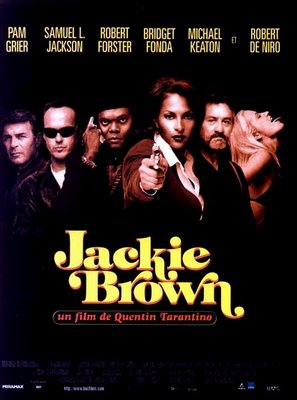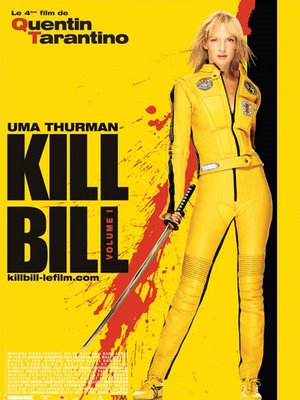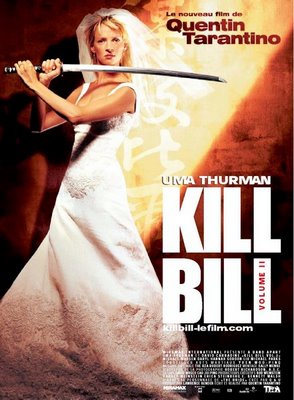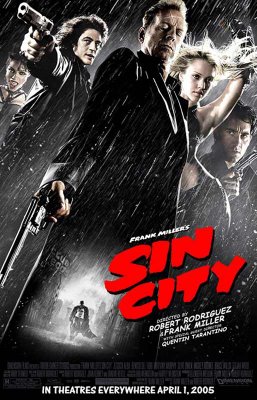Monday, April 2, 2007
Day Of Period Discharge Mucus
Original Title: Citizen Kane Year: 1941 Country: United States Type: Drama Duration: 1:59
Director: Orson Welles
With
 Orson Welles (Charles Foster Kane) Joseph Cotten
Orson Welles (Charles Foster Kane) Joseph Cotten (Jedediah Leland, reporter), Dorothy Comingore
(Susan Alexander Kane), Agnes Moorehead
(Mrs. Mary Kane) Ruth Warrick
(Emily Monroe Norton Kane) ...
article
Jean-Michel Frodo
(Le Monde 07-05-99).
Orson Welles and Citizen Kane dynamite screens U.S..
Citizen Kane . The first film of director of twenty-five years from the theater is not only a manifestation of inventive genius. He revolutionized the staging and film offers a multiplicity of perspectives. Citizen Kane was released on May 1, 1941 United States and unlike anything known. In appearance, biography to the glory of Charles Foster Kane , tycoon and the press, this puzzle offers a multiplicity of perspectives and revolutionizes staging cinematic special effects, composite images, editing, visual rhyming, narrative and sound. No genius in diplomacy, Welles puts already endangered its future within the Hollywood system. The film has angered the boss press William Randolph Hearst, who feels concerned and try to buy it to destroy the negative. Welles saw it coming ascension of the fourth estate, industrial control of information that changes the rules of politics.
May 1941
. Citizen Kane
 first film of a director of twenty-five years, an adolescent prodigy of American theater and appears to the world of culture and media, from New York to Los Angeles, is unlike anything known. As if, suddenly, a young giant laughing and proud had invented everything. Not true of course. But invention, reinvention, or use innovative proposals already explored by others, this film released in the United States on 1 May 1941 and discovers that continental Europe at the end of the war (in France, July 3 1946) is an earthquake in the history of what has been called the century's art, cinema.
first film of a director of twenty-five years, an adolescent prodigy of American theater and appears to the world of culture and media, from New York to Los Angeles, is unlike anything known. As if, suddenly, a young giant laughing and proud had invented everything. Not true of course. But invention, reinvention, or use innovative proposals already explored by others, this film released in the United States on 1 May 1941 and discovers that continental Europe at the end of the war (in France, July 3 1946) is an earthquake in the history of what has been called the century's art, cinema. What's this? In appearance, a kind of fond Hollywood biopic in the glory of the great characters that American cinema loves to breed in exemplary hero offered to the admiration of crowds. In fact, the disarticulation of scholarly and beautiful of its kind to develop, with the same elements arranged otherwise, a creative idea of staging.
The film opens with the death of Charles Foster Kane
, tycoon and the press withdrew its baroque palace after the scandal of manners that put an end to his political ambitions. A journalist will investigate newsreels about his past and ask relatives to understand this eccentric character and munificent. With an index, a trail sign, "
Rosebud," a term incantatory, mysterious, the last word uttered by the dying.
Besides the reconstruction of the childhood and early life of the hero, we discover the many facets of character through the testimony of the banker Thatcher of Bernstein who was the staunch supporter of Kane and
Leland who was his friend, Susan
, His mistress became his second wife, and servant of days, Raymond
. There is no resolution to the story that resembles the big puzzle shown in one of the final sequence, in the palace of Xanadu
. There crammed the empty remains of a raid on the artistic treasures of the world, in a delirious profusion decor could have been that of Kublai Khan such as Coleridge sang - In Xanadou him, Kublai Khan, S 'built a luxurious palace ... Kublai Khan is one of many origins to the surname Kane
such as Coleridge sang - In Xanadou him, Kublai Khan, S 'built a luxurious palace ... Kublai Khan is one of many origins to the surname Kane
proposed by scholars who refer to as readily as
Kafka
Conrad. The first feature film by Orson Welles
would indeed be first an adaptation of the novel Heart of Darkness.
is the short film Too Much Johnson
that would have given the virus to the host of the execution
Mercury Theatre. Showman (and radio) as much recognized as actor and as playwright,
Orson Welles drew from the scene of many modern advances that characterize the construction and staging of Citizen Kane. Progressive the political arena (part
Leland who was his friend, Susan
, His mistress became his second wife, and servant of days, Raymond
. There is no resolution to the story that resembles the big puzzle shown in one of the final sequence, in the palace of Xanadu
. There crammed the empty remains of a raid on the artistic treasures of the world, in a delirious profusion decor could have been that of Kublai Khan
 such as Coleridge sang - In Xanadou him, Kublai Khan, S 'built a luxurious palace ... Kublai Khan is one of many origins to the surname Kane
such as Coleridge sang - In Xanadou him, Kublai Khan, S 'built a luxurious palace ... Kublai Khan is one of many origins to the surname Kane proposed by scholars who refer to as readily as
Kafka
Conrad. The first feature film by Orson Welles
would indeed be first an adaptation of the novel Heart of Darkness.
is the short film Too Much Johnson
that would have given the virus to the host of the execution
Mercury Theatre. Showman (and radio) as much recognized as actor and as playwright,
Orson Welles drew from the scene of many modern advances that characterize the construction and staging of Citizen Kane. Progressive the political arena (part
The Cradle Will Rock , exaltation of the union struggle staged by Broadway him, was prohibited in 1937 ) Orson Welles has created a film that can be read as criticism of the ambition of the American boss. That is why the media magnate William Randolph Hearst , feeling targeted by the movie, unleashed his newspapers against him. But it is especially a great inventor of forms, some of which are inspired by these two founders of the modern theater that are
Brecht and Pirandello
.
 We find the distance of the first with the "film within a film." Second, it recognizes the intercession of a narrator, the multiplicity of perspectives. Calling into question the objectivity of the facts shown arises from the addition of testimonies collected by Thompson
We find the distance of the first with the "film within a film." Second, it recognizes the intercession of a narrator, the multiplicity of perspectives. Calling into question the objectivity of the facts shown arises from the addition of testimonies collected by Thompson
. But Citizen Kane
innovates with the tools of cinema that borrows far more to the other arts. The screenplay, co-written with Herman Mankiewicz , which disrupts both timeline and "levels of narrative," to the music (Bernard Herrmann
)
Welles
modifies all components of cinematic staging.
Resorting to special effects, he invented an original script by camera angles, lights overly powerful or weak, the use of composite images, the frames at the wide angle lens (where one "sees ceilings, signature anecdotal). Added to the intervention on the sound editing that alternates periods of expanded or shortened abruptly, creating visual rhymes, narrative and sound. The immense contribution of such a film without a doubt will lead more people to become a filmmaker, and more desire to think and write about film, no other title in the history of this medium.
Does this mean that the demiurge artist (he is both director, screenwriter, leading actor and producer) has invented everything? Of course not. The Russian formalists, the German Expressionists, the followers of French art cinema and other Americans, Griffith
Brecht and Pirandello
.
 We find the distance of the first with the "film within a film." Second, it recognizes the intercession of a narrator, the multiplicity of perspectives. Calling into question the objectivity of the facts shown arises from the addition of testimonies collected by Thompson
We find the distance of the first with the "film within a film." Second, it recognizes the intercession of a narrator, the multiplicity of perspectives. Calling into question the objectivity of the facts shown arises from the addition of testimonies collected by Thompson . But Citizen Kane
innovates with the tools of cinema that borrows far more to the other arts. The screenplay, co-written with Herman Mankiewicz , which disrupts both timeline and "levels of narrative," to the music (Bernard Herrmann
)
Welles
modifies all components of cinematic staging.
Resorting to special effects, he invented an original script by camera angles, lights overly powerful or weak, the use of composite images, the frames at the wide angle lens (where one "sees ceilings, signature anecdotal). Added to the intervention on the sound editing that alternates periods of expanded or shortened abruptly, creating visual rhymes, narrative and sound. The immense contribution of such a film without a doubt will lead more people to become a filmmaker, and more desire to think and write about film, no other title in the history of this medium.
Does this mean that the demiurge artist (he is both director, screenwriter, leading actor and producer) has invented everything? Of course not. The Russian formalists, the German Expressionists, the followers of French art cinema and other Americans, Griffith
to Ford, have explored many ways of borrowing Citizen Kane. But this film, which was at first nothing "experimental", offers at once a point of convergence of all these contributions in the service of a grand narrative of rise and fall which is placed immediately in the realm of myth.
formal break with the codes established by the industry images, it is not only a manifestation of inventive genius unparalleled. When Orson Welles
himself declares:
"The public is the judge. Kane was both selfish and selfless, it was both an idealist and a swindler, a very great man and a poor person. Everything depends on who speaks. (...) The purpose of the film is also more in the representation of the problem than its solution "
, it defines the democratic challenge of the modern cinematic staging open, leaving the viewer rather than give Klitschko a "sense of history" decided out of it.
http://7- art.blogspot.com formal break with the codes established by the industry images, it is not only a manifestation of inventive genius unparalleled. When Orson Welles
himself declares:
"The public is the judge. Kane was both selfish and selfless, it was both an idealist and a swindler, a very great man and a poor person. Everything depends on who speaks. (...) The purpose of the film is also more in the representation of the problem than its solution "
, it defines the democratic challenge of the modern cinematic staging open, leaving the viewer rather than give Klitschko a "sense of history" decided out of it.
Subscribe to:
Comments (Atom)
 Preview:
Preview: